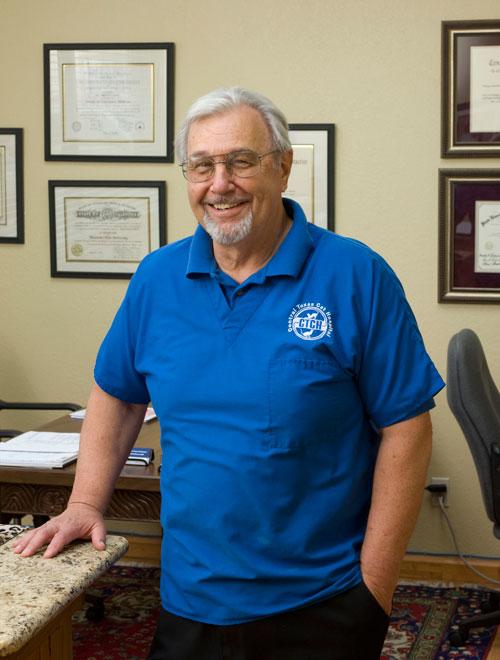
Get Involved, Stay Involved
Tuesday, May 31, 2016
Dr. Roy Smith of Round Rock, Texas, believes in being involved in every level of veterinary medicine. At age 14, he began working for a veterinarian in his hometown of Quincy, Mass. His mentor told him, “…this is a great profession and to keep it that way, you need to be involved in community work and in association work.” Smith took that advice to heart and has been volunteering and giving back to the community ever since he earned his DVM degree from Oklahoma State in 1962.
Smith served as president of the Texas Veterinary Medical Foundation and as the long time treasurer of the Texas Veterinary Medical Association. He then served as president of the American Association of Feline Practitioners in 2012 and continues his service to the AAFP as the current treasurer.
“My greatest accomplishment has been with the AAFP advancing feline veterinary medicine,” says Smith. “We have worked to educate the public on the importance of good health for their cats. People are beginning to recognize the vital role cats play in our lives as companions.”
Smith also gives back to the community by supporting multiple animal welfare organizations in his area. He has a special interest in feline leukemia cats and in 2004 with his wife co-founded Shadow Cats, a 501c3 organization dedicated to the care of special needs cats. There, hundreds of cats have found a safe haven and an opportunity for a better life over the last 20 years. Shadow Cats and Dr. Smith are committed to helping all felines live their best lives—even those that have historically been euthanized because of their health or diagnosis. He is also a strong proponent of TNR—Trap, Neuter and Return—and believes that a ‘no kill’ status cannot be truly achieved without strong community based TNR programs.
Smith owns and operates Central Texas Cat Hospital in Round Rock, Texas. He has had the feline exclusive, no declaw practice for more than 13 years. Prior to this, he has owned three other small animal practices in his career.
He also serves on the board of directors for the Veterinary Information Network (VIN).
“VIN is an online source for veterinary medicine that literally is accessible around the globe,” states Smith. “The information we provide goes all over the world to veterinarians everywhere. It is particularly helpful in underserved areas where veterinarians can now access valuable information.”
Smith encourages others to volunteer in their communities and in leadership roles.
“There are things coming down the road that are trying to change how we practice veterinary medicine,” he adds. “We need people to get involved locally and nationally to keep the profession strong. Get involved when you are in veterinary college or from day one when you graduate. My motto is, ‘get involved, stay involved and don’t be discouraged. Persevere. You can make a difference.’ Some may think their one vote or one action doesn’t matter, but it does. It all starts with one. Get involved and make difference in your community, your state, your region and the world.”
For information on how you can volunteer, talk with your local veterinary medical association, the American Veterinary Medical Association or people in organizations connected to your specialty such as the American Association of Feline Practitioners, The American Board of Veterinary Practitioners, the American Veterinary College of Internal Medicine and more. Volunteer at a local level, give back to your community through work with rescue and no kill sheltering systems. There are so many ways to share your skills and make the world a better place for animals.
